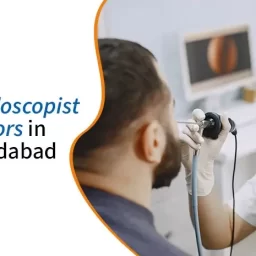
Neck cancer, a complex and often challenging condition, requires precise medical intervention. Aashwi ENT Hospital, renowned for its expertise in ENT and head & neck surgeries, offers a range of surgical options for patients diagnosed with neck cancer. Whether it’s a simple procedure or a more extensive surgery, the goal is to remove cancerous tissues while preserving as much function and appearance as possible.
In this article, we’ll explore the different types of neck cancer surgeries available at Aashwi ENT Hospital, the procedures involved, and what patients can expect in terms of recovery. From minimally invasive approaches to complex operations, understanding your options can make the journey toward recovery more manageable.
Types of Neck Cancer Surgeries
1. Neck Dissection
Neck dissection is a surgical procedure used to remove lymph nodes from the neck that may be affected by cancer. This surgery is often recommended when neck cancer spreads to lymph nodes, and it comes in three primary types: radical, modified radical, and selective neck dissection.
- Radical Neck Dissection: In this procedure, all lymph nodes from one side of the neck are removed, along with surrounding structures such as muscles or nerves if cancer has spread extensively.
- Modified Radical Neck Dissection: Similar to the radical procedure, but some non-cancerous structures are preserved.
- Selective Neck Dissection: Only specific lymph nodes are removed, aiming to limit the impact on surrounding tissues.
Neck dissections can take several hours, and patients typically require a hospital stay for a few days following the surgery.
2. Laryngectomy (Partial and Total)
Laryngectomy is the removal of part or all of the larynx (voice box), often required when cancer has invaded these areas. Aashwi ENT Hospital offers two types of laryngectomy based on the cancer’s progression:
- Partial Laryngectomy: Only part of the larynx is removed, preserving speech and swallowing functions as much as possible. This is preferred for early-stage cancers.
- Total Laryngectomy: The entire larynx is removed, and the patient will breathe through a stoma (an opening in the neck). This is typically for more advanced cancers.
Both procedures require a high degree of post-operative care and rehabilitation, especially for speech and swallowing.
3. Thyroidectomy
When neck cancer involves the thyroid gland, a thyroidectomy is performed to remove either part or all of the thyroid. This surgery can involve removing nearby lymph nodes as well, depending on the extent of cancer spread.
- Total Thyroidectomy: Removal of the entire thyroid gland.
- Partial Thyroidectomy: Only part of the thyroid is removed, allowing for some thyroid function to remain.
Patients may need hormone replacement therapy after a thyroidectomy, as the thyroid produces hormones critical to metabolism and overall health.
Procedures Involved
The surgical procedures at Aashwi ENT Hospital are carried out with precision and care, using advanced techniques to minimize trauma and improve recovery. For example, minimally invasive procedures such as robotic surgery or laser surgery are options for certain types of neck cancer, reducing the recovery time and lowering the risk of complications.
During these procedures, the hospital’s expert surgeons carefully assess the affected area, aiming to remove all cancerous tissues while preserving essential functions like swallowing, speech, and movement wherever possible.
Pre-Surgical Preparation
Patients undergoing neck cancer surgery often need pre-surgical evaluations, including imaging tests (CT or MRI scans), biopsy, and consultations with the surgical team. Depending on the complexity of the surgery, you may be asked to fast or avoid certain medications before the procedure.
The Surgical Process
Most neck cancer surgeries are performed under general anesthesia. The duration can vary depending on the type of surgery, with some taking a few hours and others requiring longer. Surgeons use state-of-the-art technology to ensure the procedure is as safe and effective as possible, often collaborating with other specialists like oncologists or reconstructive surgeons.
Recovery Process
Recovery from neck cancer surgery can vary based on the type and extent of surgery performed. Here’s a general overview of what patients can expect during the recovery phase at Aashwi ENT Hospital:
1. Hospital Stay
Following most major surgeries like neck dissection or laryngectomy, patients usually remain in the hospital for a few days to a week. During this time, medical staff monitor for any signs of infection, bleeding, or complications, and ensure the patient is stable before discharge.
2. Post-Surgical Care
- Pain Management: Patients will experience some discomfort, and pain management is typically handled with prescribed medications.
- Wound Care: Surgical sites need to be kept clean and dry, with regular dressing changes. Nurses will educate the patient on proper wound care before discharge.
- Drainage Tubes: In some cases, drainage tubes are inserted to remove excess fluids, which are usually removed after a few days.
3. Rehabilitation and Follow-Up
For surgeries involving the larynx or thyroid, patients may require speech therapy and rehabilitation to regain speech and swallowing functions. Follow-up appointments are essential for monitoring recovery, managing any side effects, and planning additional treatments like radiation or chemotherapy if needed.
4. Recovery Timeline
The full recovery process can take anywhere from a few weeks to several months. While minor surgeries may allow for a quicker return to daily activities, more extensive surgeries like total laryngectomy often require longer recovery times and ongoing rehabilitation.

















